1. Sarkozy finally back with a bang
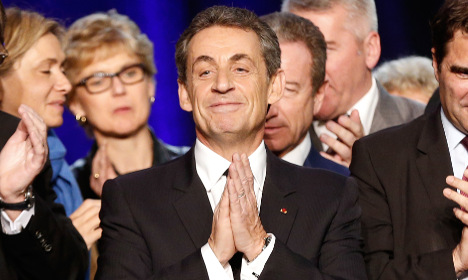
Up until these last two weeks the consensus was that Nicolas Sarkozy’s return to frontline French politics at the end of last year had been a missed opportunity.
Sarkozy has appeared uninspired, even bored at times and was left looking largely irrelevant after the Paris terror attacks for which the Socialist government and president François Hollande were credited for handling the traumatic aftermath with dignity and authority.
Sarkozy's desperation to be once again seen as a serious player in French politics could be summed up by how he nudged his way to the front of the post-terror attacks unity march alongside world leaders, for which he was largely mocked.
However the results of the local elections in which Sarkozy’s centre-right coalition took 66 out of 101 départments shows the old warrior has lost neither his appetite or skill for a fight and reports of his demise were misplaced.
“Never before has our political family achieved such a result,” said Sarkozy on Sunday night, looking highly content with his day’s work.
Sarkozy’s energetic leadership of the election campaign has helped to restore some of his allure and to cover up for his weak comeback.
Sarkozy is set to rebrand his scandal-plagued UMP party in the weeks to come in a bid to boost its image. It is expected to be re-baptised “Les Republicans” as he hopes to convince the French public that he is the true representative of French values.
While the 2017 presidential election may seem a long way off, Sarkozy, who hasn't officially announced his bid to reclaim the country's top job, faces his party's primary election next year, He will have to convince members he deserves a shot at taking back the Elysée palace.
Sunday’s resounding victory in the local elections has put him in a strong position and his rivals Alain Juppé and François Fillon must be worried. So too, perhaps for the first time, will be François Hollande.
National Front 'disappointed' by record showing
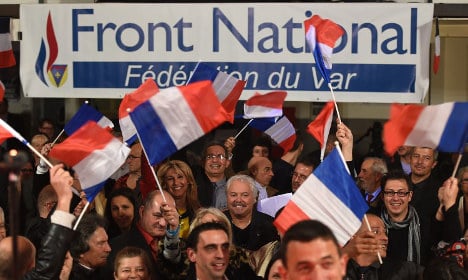
Despite Marine Le Pen putting a brave face on things, Sunday’s results were seen as a disappointment for the far-right National Front party.
The anti-immigration, anti-Europe party were left empty handed in that they failed to pick up one single council, including in their southern heartland of the Vaucluse, which was seen as their best chance of a win.
Part of the reason the results are seen as a disappointment for the FN was due to pre-election polls suggesting the party would top the vote, as well as the fact they are naturally being compared to last year’s double election success in the municipal and European elections.
However Sunday’s results still marked a historic high for the National Front as they took council seats in a record 14 départements. The FN also picked up a healthy tally of votes in various regions across the country and not just in their bastion of the south, showing their appeal is spreading and becoming more deep-rooted.
Political analyst Jean-Yves Camus noted that Sunday's departmental elections are "a less favourable (type of election) for the FN… because you need a local base and because of the way the vote is organised."
In several regions, voters on the left and right joined forces to keep the FN out of power, despite calls from Sarkozy to abstain rather than support the Socialists.
The fact that everyone is talking about the FN’s results and not just those of the socialists and the centre-right UMP shows just how far Le Pen and co have come.
While political analysts suggest she is highly unlikely to win the presidential election in 2017 as some have evoked, she is credited with establishing the FN as the third party in French politics.
Socialists in disarray once again
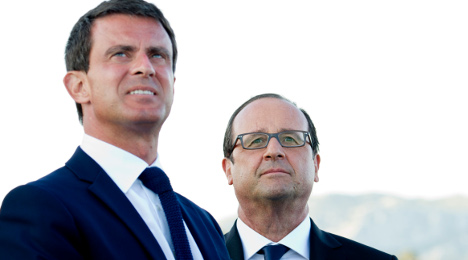
Another year, another crushing election blow for François Hollande and his Socialist government. The socialists achieved their worst result in the local elections since 1982, winning only 34 councils and seeing 25 switch from right to left.
"It's clearly yet another protest vote … and the situation is becoming very difficult two years out from the presidential election," said Frederic Dabi, from polling institute Ifop.
After last year’s hammering in the municipal elections, Hollande sacked his then Prime Minister Jean-Marc Ayrault and ordered new man Manuel Valls to form a new government.
While Valls is safe, there will be pressure on him to shake things up once again, but the prime minister himself is reluctant, possibly realising that a reshuffle now is unlikely to change the fortunes of the party.
The results were also another setback for the Hollande-Valls duo, whose popularity boost after the terror attacks has long since deflated. In a symbolic personal blow to the pair, both their local fiefdoms (la Corrèze for Hollande and Essonne for Valls) were won by the right.
Valls accepted the defeat but then attempted to divert attention away from his own party’s failings by focusing on the score of the National Front, which was “far-too high”. Perhaps he should have concentrated his campaign more on winning over unhappy socialists rather that going after Le Pen.
The Socialists have suffered mainly due to the fact those on the left of the party have deserted them and become disenchanted by the government’s continued austerity and shift to more liberal economic policies. As is usual for an unpopular government struggling to reignite the economy, they have been punished in mid-term elections.
The election result will give renewed vigour to those rebels, known as Les Frondeurs, who have already called for a new "unity of the left".
One rebel, Jerome Guedj, urged a change of course, saying: "Otherwise, tonight will just be a dress rehearsal for what is going to happen to us in 2017," when the next presidential election is held.
Just as the result is a boon for Sarkozy with the 2017 presidential election almost in sight, it is another setback for Hollande’s own ever-weakening chances of being re-elected to the Elysée Palace.

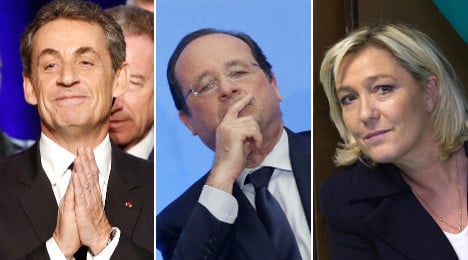
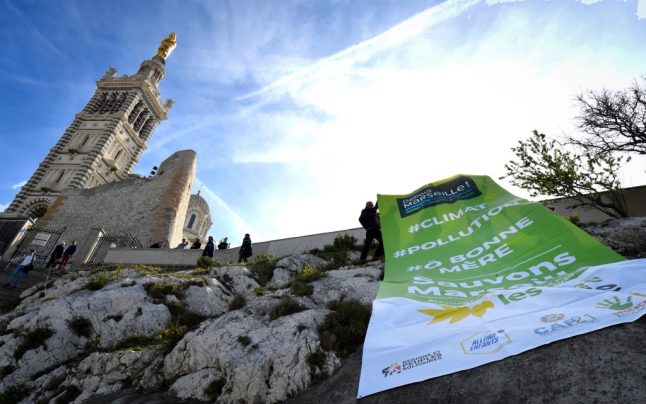
 Please whitelist us to continue reading.
Please whitelist us to continue reading.
Member comments